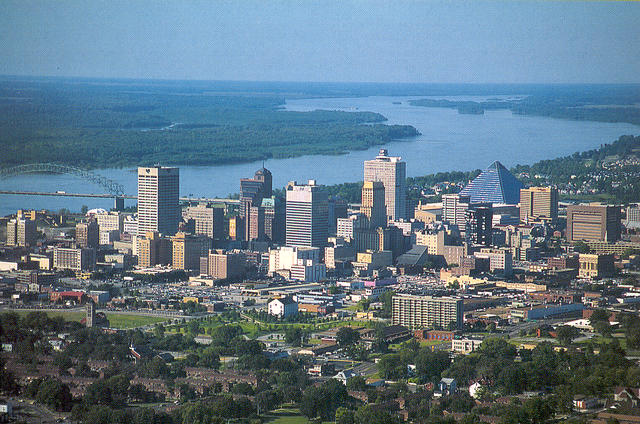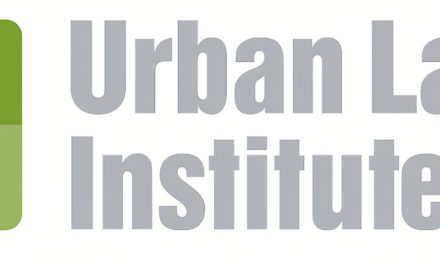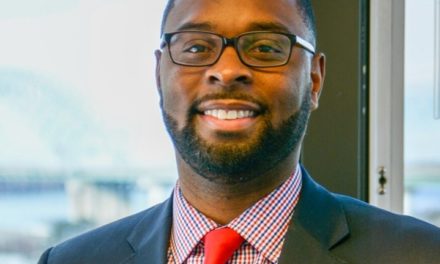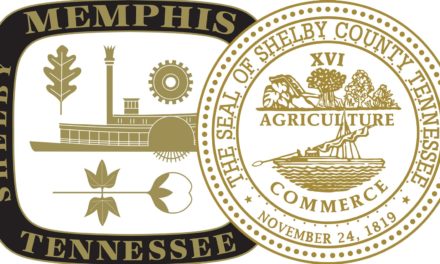We reprise this post from April 2, 2012, in light of an email we received that quoted state legislators as saying that Memphis is the biggest drag on Tennessee and that their opinions are validated by what they hear from suburban legislators and politicians. For that reason, we are re-posting this commentary:
Bartlett Mayor Keith McDonald, returning from a lobbying blitz at Tennessee Legislature in favor of more state interference in local educational decisions, said “the feeling (there) is Big Shelby is an albatross on the state…they would cut us off the end of the state if they could.”
We’re not particularly surprised by anything the Tea Partiers who have taken over state government would say. What interests us more is what Mayor McDonald replied, or if he replied at all.
He could have said that if our community is cut off the state, Tennessee would no longer have its largest private employer, FedEx, and the company with the most revenues.
He could have said that if we were cut off, Tennessee would no longer have the city with the most Fortune 500 companies in Tennessee, with revenues four times greater than those in East Tennessee and 20% greater than Middle Tennessee.
Sense of Loss
Mayor McDonald could have said that if our community was cut off, Tennessee would lose an economy larger than 12 states.
He could have said that if Memphis were cut off, Tennessee would lose St. Jude Children’s Research Hospital, the nation’s fourth largest orthopedic device manufacturing center, University of Tennessee Center for Health Sciences, and University of Memphis’ nationally ranked graduate programs – audiology (#6), clinical psychology (#71), law school (#140), rehabilitation counseling (#17), speech-language pathology (#12), education (#127), psychology (#117), and math (#119).
He could have said that if Shelby County were cut off, Tennessee would no longer have Graceland, Stax Records, Sun Records, and National Civil Rights Museum.
He could have said that because Shelby County is so important to Tennessee’s economy, Lamar Alexander, when governor, issued his first executive order to propel Memphis’ economy forward and it’s why current governor Bill Haslam has said that Tennessee’s success depends on Memphis.
Getting It Right
Mayor McDonald could have said that no city our size has been chosen by more national organizations for their work – Brookings Institution, Bloomberg Philanthropies, Gates Foundation, National Endowment for the Arts, The New Teacher Project, New Leaders for New Schools, Kresge Foundation, and more.
He could have said that if Shelby County were cut off, Tennessee would lose its most diverse community, and by far, the state’s most interesting big city.
He could have said that our city is like our music: it is imaginative, independent, no-holds-barred, and honest. It may not be to everyone’s liking, but it is nevertheless authentic and special and real.
He could have said much, much more about why his home county is so special, but we fear that he said nothing.
Undermining Local Majority Rule
If anything, comments by our own legislators have been a major factor in fueling Capitol Hill attitudes about our community. As a result, some rural legislators talk about Shelby County as if it’s a third world nation. They can’t grasp the concept of a majority minority county and reflexively see white suburbanites as victims.
It is an attitude that partially, only partially, explains the Tennessee Legislature’s attempts to undermine majority rule in Memphis and Shelby County.
Time and time again, suburban legislators have proposed bills to reverse decisions by our own local governments and to mandate specific ideological positions on the Democratic majorities of Memphis City Council and Shelby County Board of Commissioners. It is cynical, manipulative behavior, but based on the wide-ranging grandstanding undertaken by the present majority in the Legislature, it is unlikely to end anytime soon.
Get Real
But back to the Big Shelby insults, it’s a self-fulfilling prophecy.
Politicians from our county bad mouth their own home county in Nashville, vilify some of their fellow citizens, and feed an “us versus them” mentality. Recently, a town mayor said that if the towns didn’t get their own schools, it would result in an exodus of people. Of course, if that happens, it will never occur to them that their rhetoric, their dire warnings of disaster, and their fear of “the other” helped create the climate for the exodus.
That’s not to say that the Big Shelby sobriquet doesn’t have a history that extends far beyond the current partisan, racially-driven posturing. Although his first action as governor was to create the Memphis Jobs Conference in 1979, Mr. Alexander often commented that he just didn’t understand Memphis, and even Democratic Governor Phil Bredesen said that anytime he was involved in Memphis, it was a problem.
Part of this perception gap exists because Tennessee hasn’t elected a governor from Memphis in 51 years. In the intervening years, former Governor Ned McWherter was the most frequent visitor to Memphis, but then again as a West Tennessean, it was familiar territory for him and he clearly enjoyed being here. Come to think of it, so did the governor of Arkansas, and Bill Clinton was not an infrequent visitors to Memphis.
Walking Your Walk
Generally, however, over the decades, visits from the governor of Tennessee to Memphis and Shelby County became fewer and fewer. Visits from the people in charge of our legislature from other regions are virtually nonexistent, and that’s why when any of us have the opportunity to provide a more positive, balanced understanding of our community and to speak with some community pride, it’s a shame if we don’t take it.
Speaking to Leadership Memphis four years ago, Mayor McDonald called on every citizen to be part of creating a “regional good feeling” and dealing with reality instead of stereotypes. “If we sit down together and work together (as a region) and get excited about ourselves, we can make the kind of future that we all want.”
It’s well-said, and hopefully, that’s what he’s saying in Nashville.







He could have said that if our community is cut off the state, Tennessee would no longer have to claim the city with the 6th largest African-American majority.
I know it will never happen but it would great if Shelby were “cut off” and presumably made a territory. We are treated like a colony and forced to live under rules that are imposed by the rural and suburban legislators. From my experience, even Nashville Democrats treat us with an air of condescension.
Without TN telling us how a city should be run, we could create a tax system and incentives to attract business versus having to work through a patchwork of PILOTS and a few other creative incentives that often still lose out to MS and other places.
We could attract better resources to attack the ever-present problems of poverty and education.
It wouldn’t be perfect but TN holds us back more than helps us.
In the meantime, I agree that we do need to think regionally and supportive of the Memphis Metro area as a whole.
I really enjoy Memphis, so I am also always baffled by the hostility that I often hear from people. In addition to an economy that supports all of west Tennessee, Memphis is just simply a good place to live. I am a huge fan of Memphis restaurants — and I live in Cooper Young so many great restaurants are a short walk away. And I feel safe most of the time — crime is not a daily issue if you live in the city. We have our problems but they are not dramatically worse than most big cities. I am guessing that the two big issues are: (1) race and (2) political liberalism. Many people just cannot cope with a majority black political and cultural environment. And, culturally, city people realize that rugged individualism is less important than the collective supply of water and good sewers.
Memphis has so many serious problems….among the worst of any city in the country. We can’t be naive and blame the state legislature for everything that ails this city. We have inept local leadership at all levels, and it’s local leadership that has failed Memphis for decades. I’m sorry to say that we are destined for continued problems and continued decline.
I might quibble a bit with the assertion that there hasn’t been a Governor from Memphis in 51 years. Don Sundquist was technically “from” Shelby County but his tenure was hardly transformational for the region and he probably aligned more with the reactionary suburbanites.
No doubt the legislature deserves a fair share of blame, but so do past legislatures. Memphis had as many or more problems than it does today back when the Democrats controlled the TN legislature with big majorities.
Our local governments, business community, and ENTIRE legislative delegations (spanning urban/suburban, racial, and partisan lines) need to work harder, dig deeper, and come up with a far-reaching consensus regional agenda that can be achieved.
Allow Memphis to have a proactive agenda rather than merely a reactive agenda of band-aid incentive workarounds, urban-suburban fights, superceding local control, etc. There is a vital place for Memphis voices when it comes to Medicaid expansion, curbing gun violence, and so forth, but those issues are decided on stark ideological grounds rather than a pro- or anti-Memphis basis.
We have smart, thoughtful leaders in all corners of the spectrum. We also have our share of duds…but so does everywhere else.
Memphis gets very little out of state government because it doesn’t ask for truly ambitious or creative things and our leaders are not rallied to any common causes.